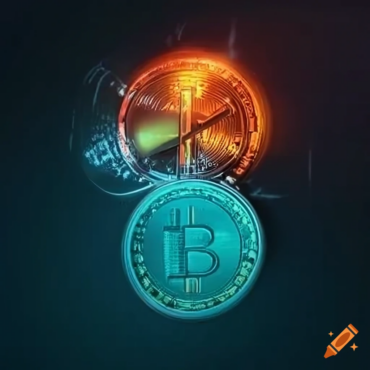
In what may come as little surprise to those within the cryptocurrency investment community, BlackRock’s iShares Bitcoin Trust has now, indeed, taken the pole position from Grayscale’s Bitcoin Trust as the world’s largest Bitcoin ETF. This represents one more milestone in the evolution of the cryptocurrency market and raises several questions regarding which path the two various investment routes will take-and how both will affect investors moving forward.
Background: BlackRock vs. Grayscale
The recent launch of IBIT by BlackRock, the world’s largest asset manager, is the latest entry in the Bitcoin ETF fray. This allows for a regulated, easy way to get exposure to Bitcoin for investors. In contrast, Grayscale’s Bitcoin Trust has been one of the most powerful and longest-running market participants, allowing institutional and retail investors to get structure of trust holding underlying Bitcoin.
Changing of the Guard
And now, with the growing momentum in popularity and inflows, IBIT has snatched the world’s largest Bitcoin ETF title from GBTC. This dethroning in general represents a broader trend in the market, where investors increasingly favor regulated ETFs over traditional trust structures.
What Does This Mean for Investors?
The rise of IBIT and its outnumbering of GBTC raises quite a few key questions for investors:
- Impact on Market Dynamics: The erosion of market share leadership from GBTC to IBIT is also indicative of the shifting investor preference to ETFs due to their better liquidity, transparency, and regulatory environment. This may have Grayscale and other trust providers reevaluate their strategy and product offerings.
- Market Growth Potential: The appearance of regulated Bitcoin ETFs, such as IBIT, is likely to bring an inflow of new investor participants into the cryptocurrency market. An investment vehicle more accessible and familiar may make institutional and retail investors alike feel more comfortable in allocating capital to Bitcoin, further driving market growth.
- Competition and Innovation: This tends to increase innovation in product offering since there is direct competition between IBIT and GBTC. In features such as fees, custody arrangements, and ancillary services, both the providers might attempt to distinguish themselves from one another. This would ultimately help investors as there would be a wider range of choices available to them.
What’s Next?
As IBIT cements its place as the world’s largest Bitcoin ETF, here’s what one may look out for:
- Regulatory Environment: The continued regulatory clarity and acceptance of Bitcoin ETFs will continue to form a vital base for any meaningful growth and adoption of this new asset class into mainstream investing. Clear regulation could give investors confidence and certainty, which could easily result in further inflows into such ETFs as IBIT.
- Investor Sentiment: Investor sentiment toward Bitcoin, and by extension, cryptocurrency as an asset class, will go a long way in dictating the future success of ETFs such as IBIT. Good sentiment driven by macroeconomic conditions, technological advancements, and institutional adoption could see higher demand for Bitcoin ETFs.
- Market Volatility: Bitcoin is an inherently volatile asset, and that is a factor in investing in ETFs such as IBIT. To the extent that volatility creates opportunities for gain, those same risks make it imperative to have formidable risk management strategies in place, alongside a long investment time horizon.
Conclusion
Well within half a year since its inception, BlackRock’s IBIT has emerged as the world’s largest Bitcoin ETF-a milestone in the continuing evolution of cryptocurrency investing. As IBIT surges ahead of Grayscale’s GBTC, investors weigh newer opportunities and watch points that come along with treading the waters of cryptocurrency. With regulatory developments, investor sentiment, and market dynamics continuing to shape the future of Bitcoin ETFs, the next few months and years will likely also see further innovation, growth, and competition in this space. As always, investors are warned to do due diligence and consult professional advice before making investment decisions in this ever-changing market.





